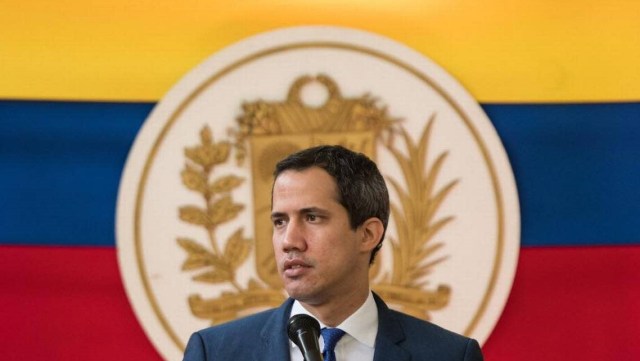
Venezuela’s opposition-led interim government, recognized as the legitimate government by dozens of countries, including the United States, may cease to exist as early as next week, after legislators voted this week to get rid of the institution led by Juan Guaidó during a National Assembly video session.
By AOL – Nora Gámez Torres
Dec 23, 2022
The National Assembly passed a motion to remove the interim government by a wide margin – 72 in favor, 23 against and nine abstentions – on Thursday. But the decision is preliminary, and the Assembly is set to meet on Dec. 29 for a final vote on the future of the interim government, which at its peak was recognized by a coalition of 60 nations, including the U.S.
The proposal also calls for creating a board of directors appointed by the Assembly to manage Venezuela’s assets abroad. The plan had the support of three major opposition parties, all of which have their eyes on the country’s 2024 presidential elections.
The move puts the U.S. in a difficult position, as it has been the most enthusiastic backer of the interim government since the National Assembly created it in 2019. In 2020, Guaidó was received with honors in the White House by then-President Donald Trump and was invited to his State of the Union address. The Biden administration has continued recognizing Guaidó, but disagreements over whether to undo sanctions against the Nicolas Maduro regime have spilled into the public, and interim government members have privately expressed their worries about what they perceived as an erosion in U.S. support.
The White House signaled Friday it wouldn’t take sides in the opposition infighting.
“We are not going to comment on internal opposition deliberations,” a National Security Council spokesperson said. “The United States will continue to support Venezuela’s democratic opposition, the democratically elected National Assembly, and the interim government, regardless of what form it takes.”
Ahead of the vote, U.S. Senators Bob Menendez (D-NJ), the chairman of the Senate Foreign Relations Committee, and Dick Durbin (D-IL) met virtually with Guaidó on Wednesday and later issued a statement of support.
“In the face of Maduro’s cruelty and criminal ineptitude, interim President Guaidó stands for a better future for the Venezuelan people,” Durbin said. “His efforts to negotiate desperately needed humanitarian aid to the Venezuelan people and a credible internationally monitored 2024 presidential election deserve the world’s strong support.”
After Thursday’s vote Guaidó, the current head of the Assembly, continued defending on Twitter an alternative plan by his party, Voluntad Popular, to extend his mandate for one year. He said the interim government was not about “a person but the tools we have to protect Venezuelans.” He added that its elimination would open the way to recognizing Maduro, widely believed to have clung to his seat fraudulently, as legitimate.
The vote comes after rival opposition parties, and even former Guaidó allies, argued that the interim government did not achieve the political goal behind its creation in 2019: dislodging Maduro from power. Voter fatigue, political rivalries and controversies over the handling of Venezuela’s financial resources abroad also played a role. But many Venezuela watchers expressed dismay at a decision that removes one of the obstacles for Maduro to expand his international legitimacy at a time the two sides are engaged in talks in Mexico regarding the forthcoming presidential elections.
An end to the interim government would raise several questions, among them what would happen with Venezuela’s embassy in Washington, D.C., currently under Guaidó’s control. An embassy spokesperson did not immediately reply to a request for comment.
The decision would also pose new issues for the Biden administration, whose Venezuela policy currently entails support for the interim government and a range of individual and economic sanctions against the Maduro regime, which the United States does not officially recognize.
While the Biden administration has continued essentially the same “maximum pressure” policies drafted under Trump, it has reversed some sanctions with the hope Maduro will negotiate with the opposition the conditions to hold democratic elections. The strategy has been received with criticism or skepticism by many, including members of Congress.
The National Security Council’s spokesperson said the administration does not intend to lift sanctions without concrete results and could reverse a renewed license to oil company Chevron to resume limited operations in Venezuela.
“As we made clear, we provided targeted sanctions relief based on concrete steps by the Maduro regime to return to talks focused on bringing democracy back to Venezuela,” the spokesperson said. “We can amend or revoke the license at any time should the Maduro regime fail to negotiate in good faith or follow through on its commitments.
“Other Venezuela sanctions remain in place, and we will continue to enforce them while holding accountable any actor who engages in corruption, violates U.S. laws or abuses human rights in Venezuela.”
…
Read More: AOL – In controversial vote, Venezuelan opposition moves to end Guaidó’s interim government
…

